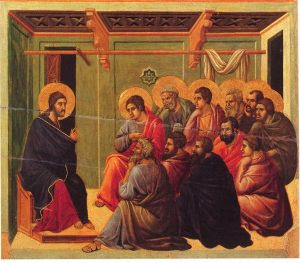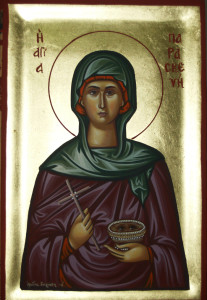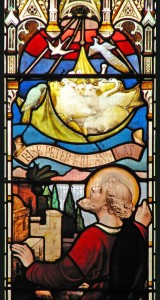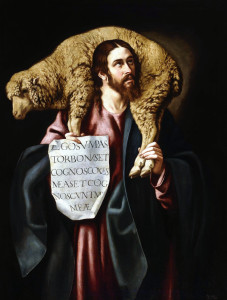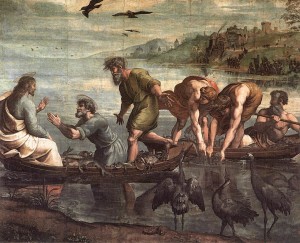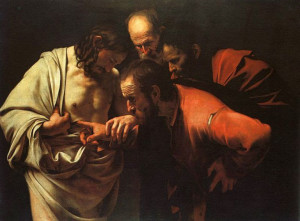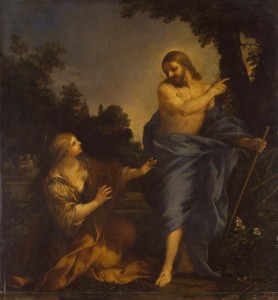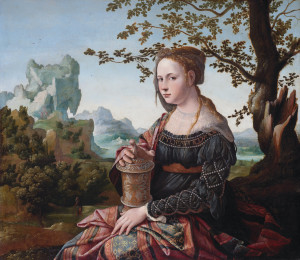Thoughts on Today’s Lessons for May 15, 2016
A Maronite Christian icon depicting the first Pentecost.
Come, Holy Spirit! It is Pentecost, and the Spirit – the Advocate that Jesus had promised that God would send to she apostles in his name – comes into the room in wind and tongues of fire. This is a noisy, exciting scene. We might interpret it as a reversal of humanity’s division into many languages at the Tower of Babel: every person in the crowd of spectators from many nations hears the apostles speaking in his or her own native tongue. Peter then preaches to the crowd in the apocalyptic words of the Prophet Joel, foretelling that God would pour out the Spirit on all God’s people in the last days.
We sing this resounding hymn of praise today, celebrating God as the creator of all the earth and everything that lives on it. God made all things great and small, even the countless creatures that live in the sea; even Leviathan, the great whale, which the Psalmist imagines that God made “for the sport of it.” God feeds all creation, in life and in death. May God rejoice in all creation as we rejoice in God. “Bless the Lord, O my soul!”
Second Reading: Romans 8:14-17
In this short reading we see Paul sketching ideas that the early church would eventually work out as Trinity and proclaim in the Nicene Creed: God, Abba, the Father, sends God’s Holy Spirit to lead us to become children of God, with Jesus, the Son of God, with whom we suffer and through whom we are glorified.
Gospel: John 14:8-17, 25-27
Does the end of today’s Gospel sound familiar? We heard the ending verses just three weeks ago, when Jesus assured the apostles that God would send the Advocate, the Holy Spirit, in Jesus’ name, to guide them and remind them of all that Jesus taught. Now we hear the preceding verses, in which Jesus assures the apostles that Jesus dwells in God and God in Jesus: “Whoever has seen me has seen the Father.” God has done God’s works through Jesus; and through the power of the Spirit, those who believe in Jesus may also do those works.

